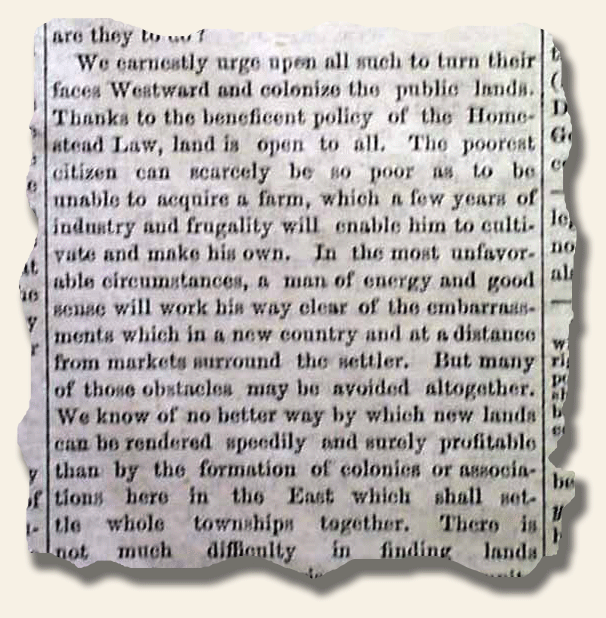They put it in print, 1917 – “The more things change…”
October 4, 2021 by GuyHeilenman · Leave a Comment
A recent post focused on a headline which borrowed Jean-Baptiste Alphonse Karr’s famous words from 1849: “the more things change, the more they stay the same” (translated from “plus ça change, plus c’est la même chose”). This tendency, as applied to human behavior, has certainly been substantiated time and time again in the world of politics.
During former President Trump’s term in office “leaks” were springing up everywhere. For a novice to the political realm this may have appeared to have been a new phenomenon; however, the banner headline from a San Diego Evening Tribune dated January 8, 1917 makes it clear that once again, Jean-Baptiste Alphonse Karr was spot-on. How do we know? They put it in print: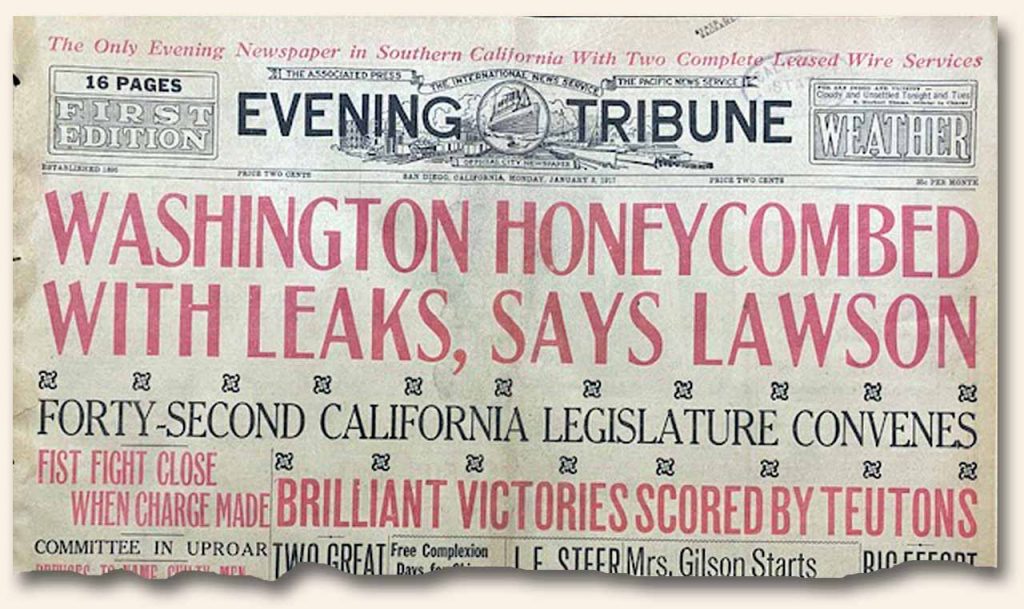
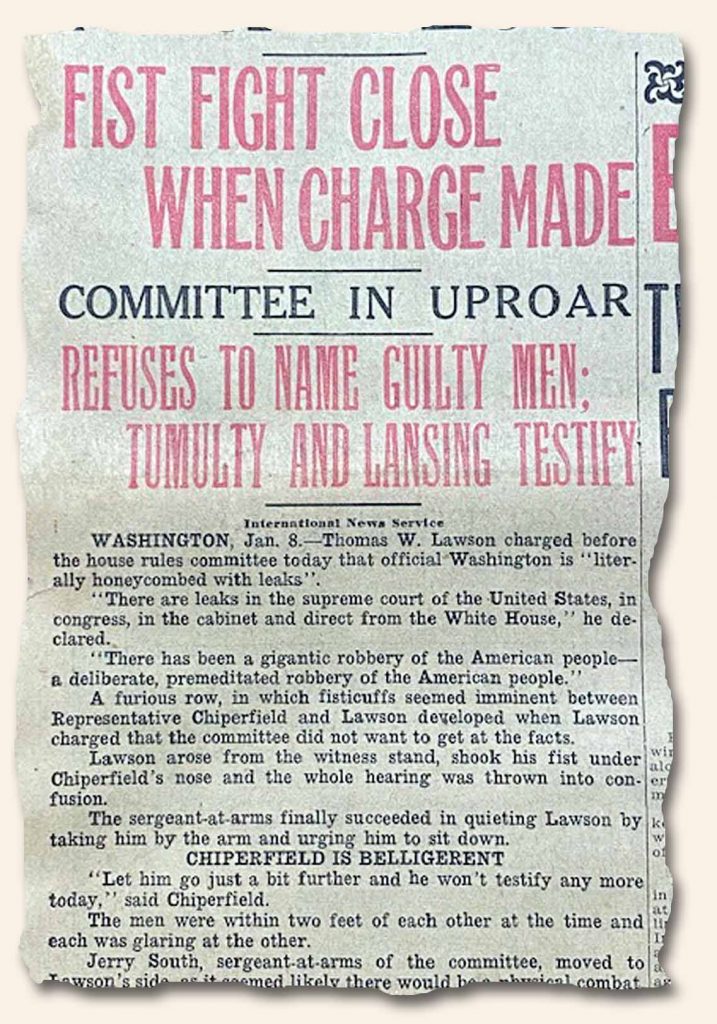
Snapshot 1922… John who?
October 4, 2019 by GuyHeilenman · 2 Comments
Unless you grew up in the Philadelphia – New York City corridor, you may not recognize the name, but he certainly made his mark on American culture in general, and the Philly region in particular. Famed merchant, marketing pioneer, founder of one of the first major department stores, U.S. Post Master General, notable Christian philanthropist, and more, his name was recognized throughout the world in the mid-to-late 19th century. Until its closing, the Wanamaker Building was a frequent destination for most who visited Philadelphia, especially during the Christmas Season. Some of his more-famous quotes include: “People who cannot find time for recreation are obliged sooner or later to find time for illness.” “People who cannot find time for recreation are obliged sooner or later to find time for illness.” “Half the money I spend on advertising is wasted; the trouble is, I don’t know which half.”
As was reported in the December 12, 1922 issue of The Bethlehem Times, John Wanamaker met his Maker on the same day as this report. While his influence lives on through such simple things as “the price tag” (on products), his name is slowly succumbing to that which befalls us all. Still, those of us who know of his contributions appreciate his impact on society, and have fond memories of his Christmas Light Show and one of the most amazing pipe organs in the world. Thanks John.
Update from a comment posted as a follow-up to this post: “It is true that Wanamaker department store is closed, but since then, the building has housed two other department stores, Hecht’s and Macy’s. Both companies have continued the Christmas light and organ traditions. Macy’s, the current owner, even funded a multi-million dollar restoration to the light show. Going to Wanamaker’s at Christmas is still a yearly tradition that my family enjoys, and many a Philadelphian still “meet at the eagle,” on a daily basis.” Thanks Bill (see posted reply)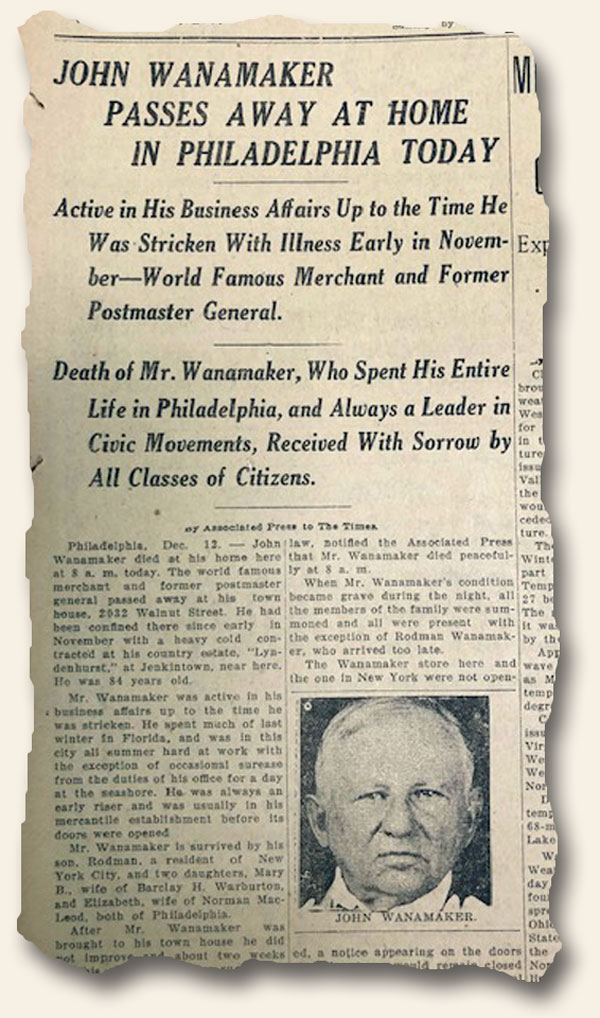
The Traveler… Battle of Tippecanoe…
December 5, 2011 by The Traveler · Leave a Comment
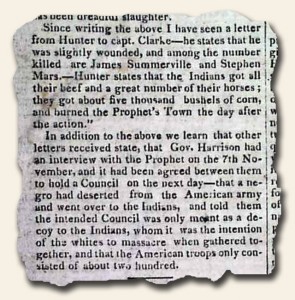 Today I traveled to December 5, 1811 where I found the Middlesex Gazette from Middletown, Connecticut carried an extract of a letter sent to a Member of Congress. This was reporting on “an action between the troops under Gov. Harrison and the Indians under the Prophet… There were 170 whites killed and wounded, and as many Indians… The battle was fought in sight of the Prophet’s Town…. There has been dreadful slaughter…”, being a report on the famous Battle of Tippecanoe.
Today I traveled to December 5, 1811 where I found the Middlesex Gazette from Middletown, Connecticut carried an extract of a letter sent to a Member of Congress. This was reporting on “an action between the troops under Gov. Harrison and the Indians under the Prophet… There were 170 whites killed and wounded, and as many Indians… The battle was fought in sight of the Prophet’s Town…. There has been dreadful slaughter…”, being a report on the famous Battle of Tippecanoe.
Governor William Harrison later became our ninth President of the United States which had the campaign slogan “Tippecanoe and Tyler, too”. He also the shortest serving president and the first president to die in office.
A little tidbit of history for this day… 200 years past!
~The Traveler
“Go West, young man…”
December 20, 2010 by TimHughes · 2 Comments
I know there is dispute over who first used the oft-cited phrase: “Go West, young man…” widely attributed to Greeley. The following provides some background:
“…That is a question that is still being argued more than a century later. Horace Greeley (1811-72), founder of the New York Tribune, has long been quoted for his line in a July 13, 1865 editorial. The authorship was disputed, however, in the 1981 book, The People’s Almanac, by David Wallechinsky & Irving Wallace. They were not the first to dispute the parentage, but they certainly popularized the argument. They claimed that John B. Soule (1815-1891) penned the line 14 years earlier, in 1851, in an editorial in the Terra Haute, Indiana, Express.
That was not the end of the argument and all its permutations, however, because in September, 2004, author Thomas Fuller confused the matter even further when he published an article in the Indiana Magazine of History in which he claimed that he could not find any such quote by Soule. In fact, he could not even find a published claim for Soule’s parentage before 1890. That revelation intrigued us because we have always noticed how odd it is that a date in 1851 has never been supplied. The lack thereof always rings an alarm and suggests that the writer is merely quoting someone else. So, let us look at the evidence.
Hal Gordon wrote this summary of Greeley’s editorial:
Greeley’s editorial in the New York Tribune in 1865 was addressed specifically to young civil servants in Washington, D.C. who were complaining that the government didn’t pay them enough, given the high cost of living in the nation’s capital. Greeley had scant sympathy for them. He wrote: “Washington is not a place to live in. The rents are high, the food is bad, the dust is disgusting and the morals are deplorable. Go West, young man, go West and grow up with the country.”
Despite the controversy, there seems to be a general consensus among the many citations on the internet that Greeley used the phrase in his July 13, 1865 editorial, as noted above. I have the Tribune of the 13th and scoured through the issue yet never found the quote. The closest I could come is in “The Homestead Law” piece, page 4 col. 4, where he mentioned: “…We earnestly urge upon all such to turn their faces Westward and colonize the public lands…” (see below).
Am I missing something? Does the phrase actually exist somewhere in this newspaper? Could one erroneous citation many years ago have been cited again and again without anyone actually checking the newspaper to verify? Perhaps some collectors have this issue, or perhaps another edition with this famous quote. I would appreciate hearing from anyone who might be able to offer some helpful information.